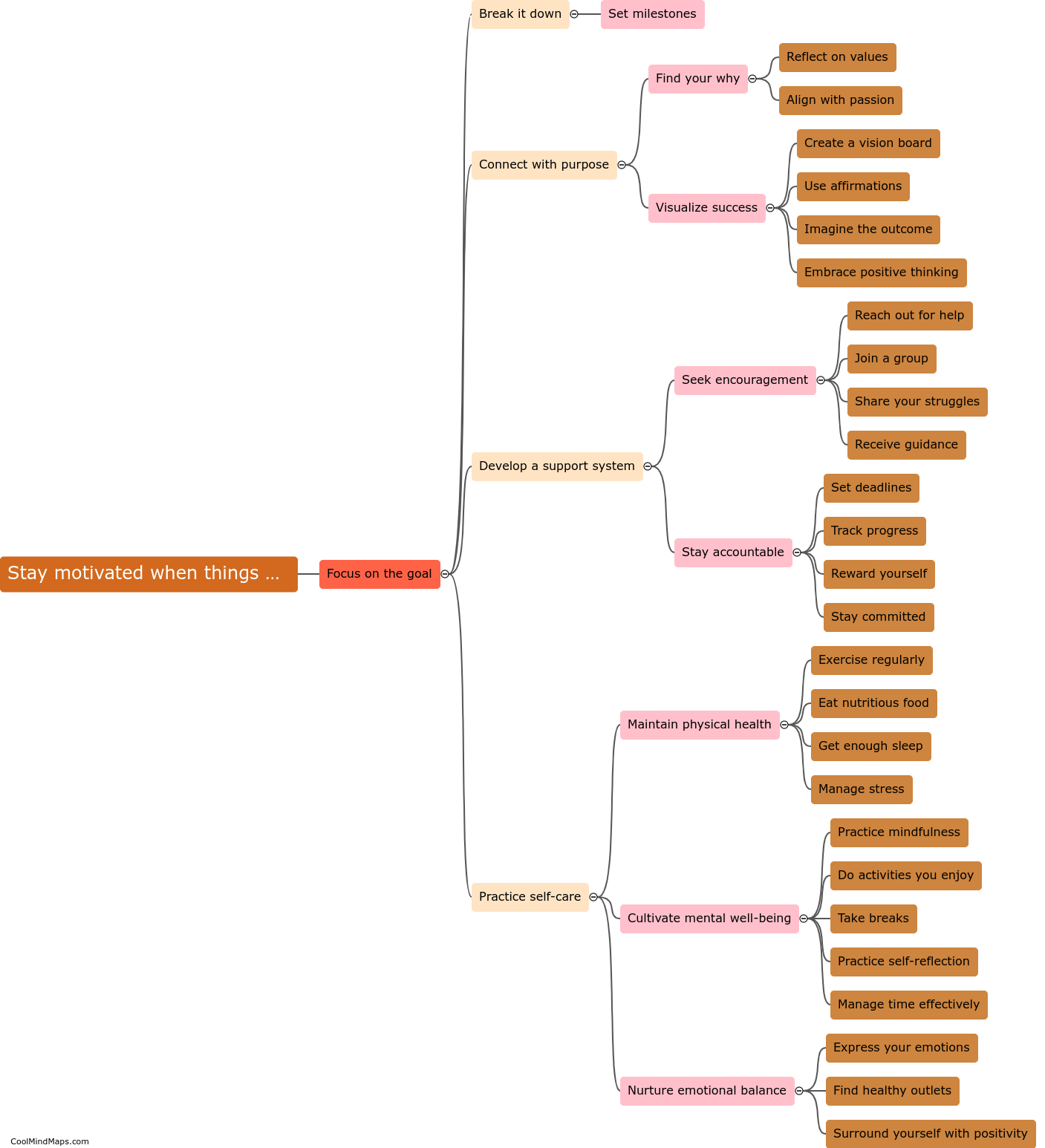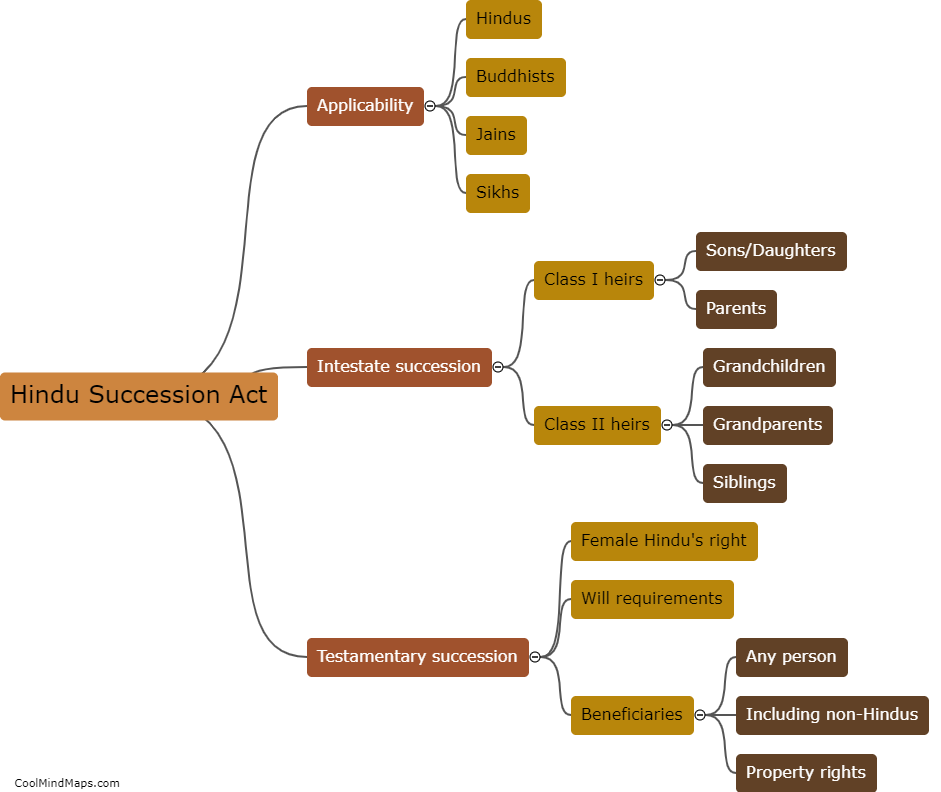How has Hindu Succession Act evolved over time?
The Hindu Succession Act, which governs the distribution of property among Hindu families, has undergone significant transformation since its inception in 1956. Originally, the Act only recognized male heirs and prohibited women from inheriting ancestral property. However, amendments in the Act in 2005 abolished this gender-biased provision and granted women equal rights to ancestral and self-acquired property. The amended Act also recognized the legal status of daughters as coparceners and expanded the definition of Hindu to include communities like Jains, Sikhs, and Buddhists. These changes have helped in promoting gender equalities and empowering women.

This mind map was published on 17 May 2023 and has been viewed 109 times.











